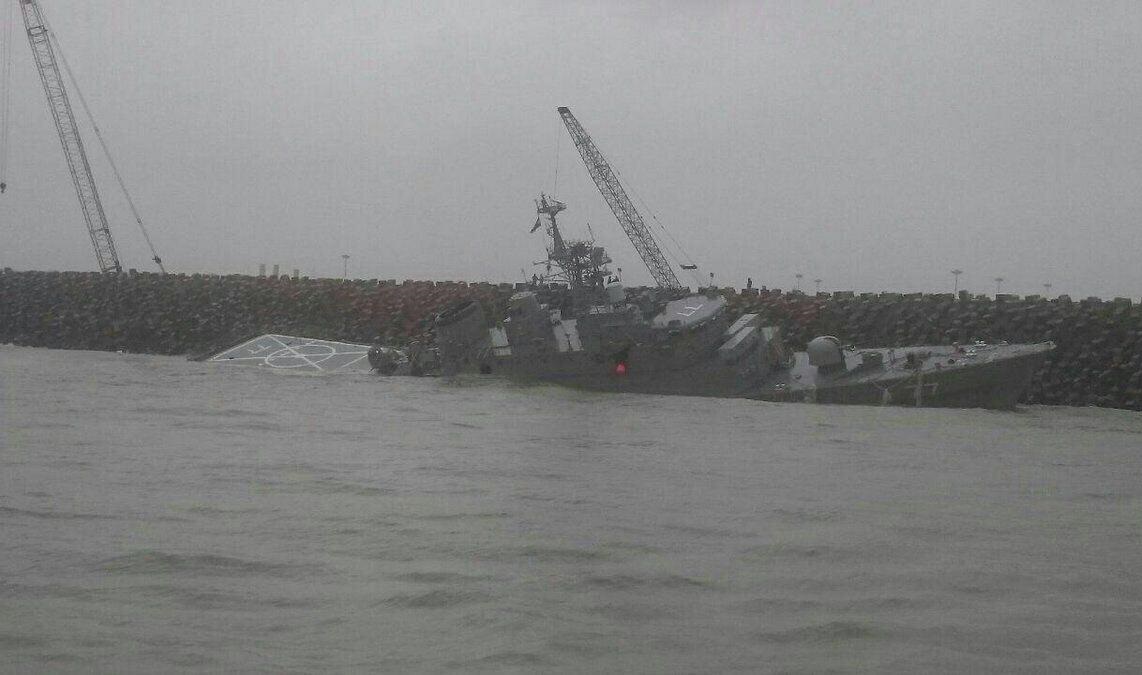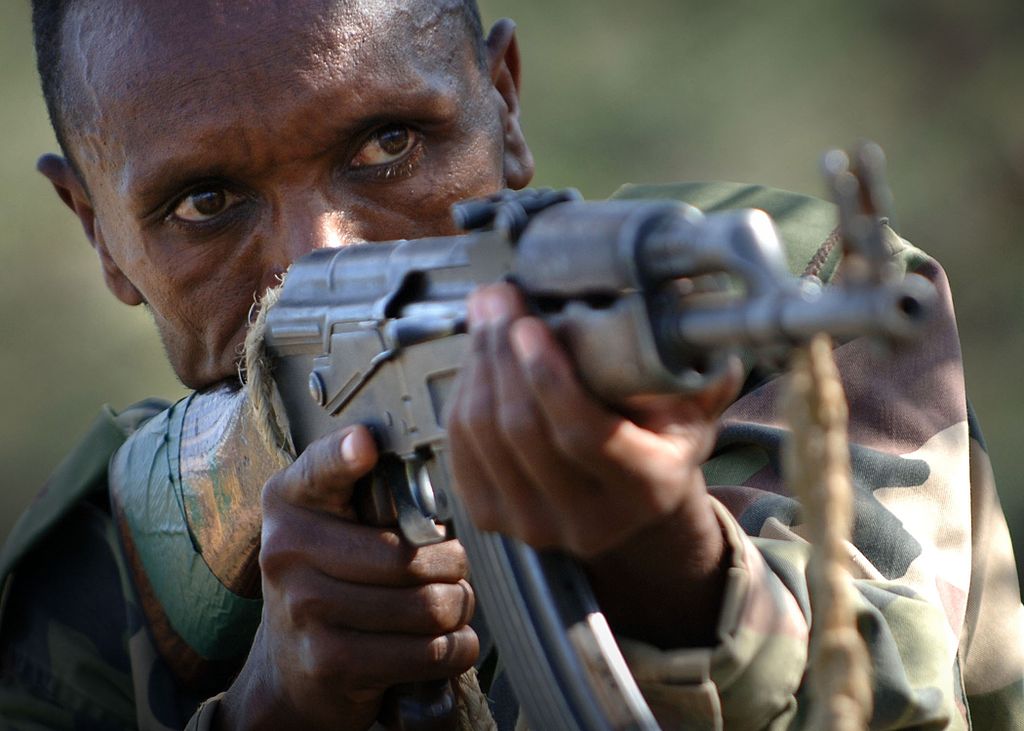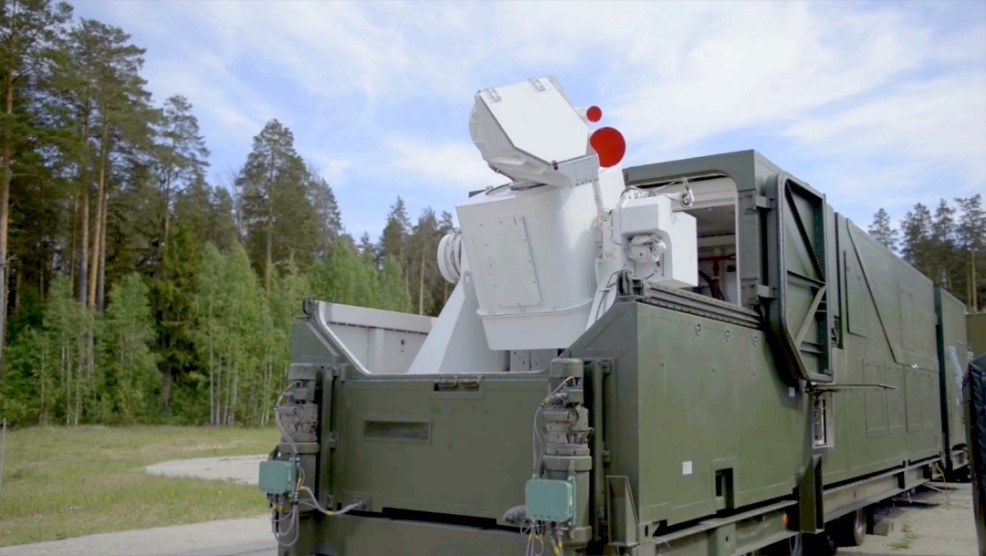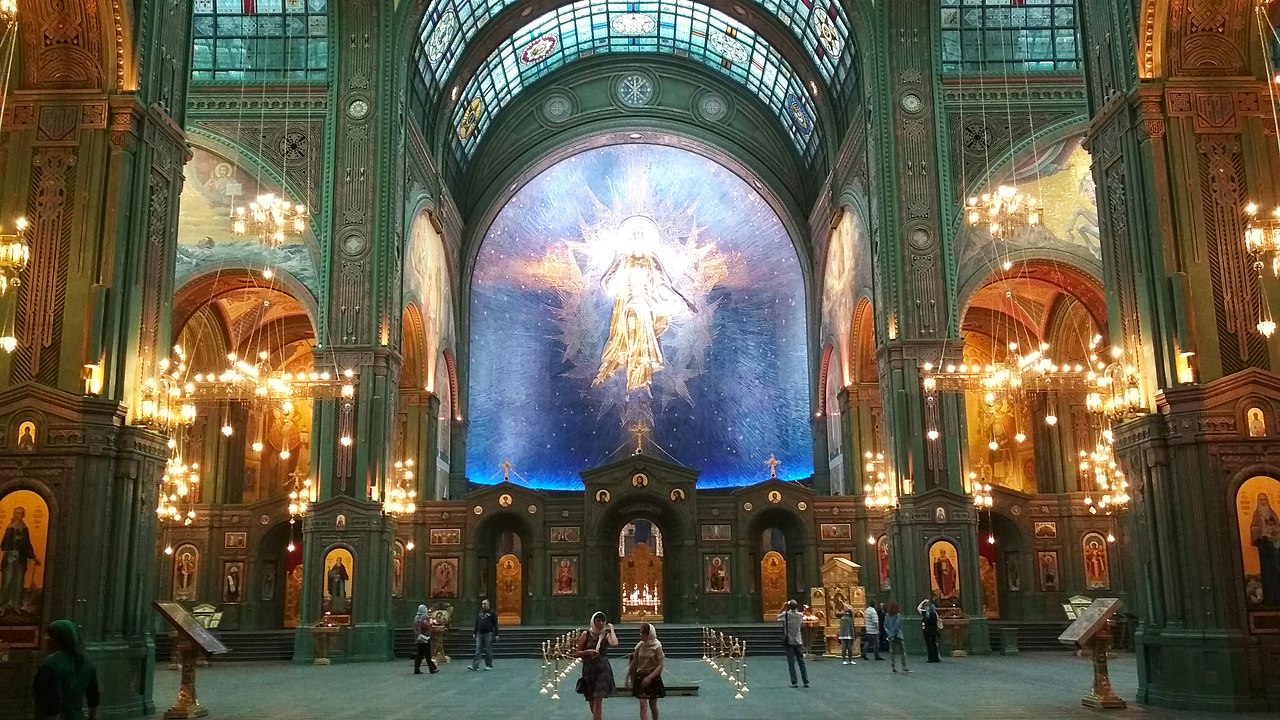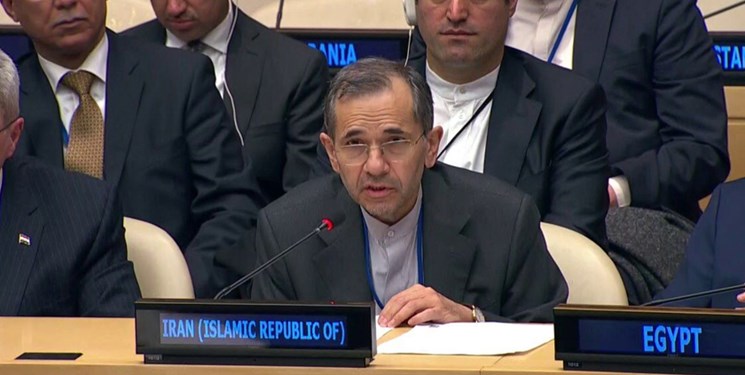
Iran’s UN Ambassador Majid Takht Ravanchi, 2 March 2022.
“The security concerns of the Russian Federation must be taken into account.”
The excerpted article from the official government media outlet Islamic Republic News Agency, explains Iran’s abstention from a United Nations resolution condemning Russia’s invasion of Ukraine. The article cites Iran’s Ambassador to the UN Majid Takht Ravanchi, who offers a series of excuses without addressing the elephant in the room—Iran’s military, diplomatic, and financial ties to Russia. First, he questions the UN General Assembly’s right to condemn Russia as opposed to the UN Security Council, although Iran frequently complains that the UN Security Council is archaic, benefits the United States, and is in need of “democratization” and reform. Second, Ravanchi argues that it was hypocritical to condemn Russia for invading Ukraine but not Saudi Arabia for its actions in Yemen despite the fact that Saudi Arabia’s actions are at the invitation of the UN-recognized government in Yemen and are not part of a war of conquest. Ravanchi’s complaints about lack of participation may also reflect frustration with a temporary ban that the UN imposed on some Iranian voting in January 2022, due to Tehran’s unpaid dues.
Ravanchi’s need to issue such a lengthy explanation is partly due to the deep unpopularity of the abstention vote inside Iran. While the Iranian government sought to avoid antagonizing Russia, ordinary Iranians draw a parallel to their experience during the 1980-88 Iran-Iraq War. Iraq was the aggressor during that conflict, but most of the world nevertheless isolated Iran due to antagonism toward its revolution its and subsequent taking of hostages. Iranians still lament what they see as a lack of justice at the time and draw parallels between their experience 40 years ago and events in Ukraine today. They are, therefore, critical of their government’s refusal to side with Ukraine and condemn Russia. Ravanchi probably understood he needed to explain his vote in order to quell public anger.
Source:
“Qat’anameh Mojomeh-e ‘Amumi Sazman’e Melli ‘Aliyeh Rusiyeh ba 141 ray-e Movafeq Tasvib Shod (The UN General Assembly resolution against Russia was adopted by 141 votes in favor),” Islamic Republic News Agency (official government news outlet), 2 March 2022. https://www.irna.ir/news/84668745
UN members voted in favor of the resolution, which was approved by about 80 countries, condemning Russia’s invasion of Ukraine and calling for the immediate withdrawal of Russian troops from Ukraine. The UN General Assembly resolution was adopted by 141 votes to 35, with five abstentions. Russia, Syria, Belarus, North Korea and Eritrea voted against the resolution. Also, Algeria, Angola, Armenia, Bangladesh, Bolivia, Burundi, the Central African Republic, China, Congo, Cuba, El Salvador, Equatorial Guinea, India, Iran, Iraq, Kazakhstan, Kyrgyzstan, Laos, Madagascar, Mali, Mongolia, Mozambique, Namibia, Nicaragua, Pakistan, Senegal, South Africa, South Sudan, Sri Lanka, Sudan, Tajikistan, Uganda, Tanzania, Vietnam and Zimbabwe abstained….
Following the adoption of the UN General Assembly resolution on the Ukraine crisis, Iran’s representative to the UN said that the resolution submitted to the General Assembly lacks the element of neutrality and realistic mechanisms for resolving the issue through peaceful means…. He added, “The Islamic Republic is following the ongoing conflict between Russia and Ukraine with deep concern.”
He stated that the Islamic Republic of Iran’s principled position is based on the need for a peaceful settlement of disputes in accordance with international law and the need for full compliance by all parties with the supreme principles enshrined in the Charter of the United Nations and international law, including international humanitarian law. We emphasize that the sovereignty and territorial integrity of all countries must be fully respected and the safety and security of all civilians must be guaranteed.
[Majid] Takht Ravanchi continued, “Finding a lasting and long-term solution to such crises requires addressing its roots. We note that the current complexity and fragile situation in Eastern Europe has been exacerbated by provocative actions by the United States and NATO. The security concerns of the Russian Federation must be taken into account.”
Takht Ravanchi said that the United Nations should always avoid double standards in dealing with issues related to international peace and security…. An example of this is the Security Council’s approach to the ongoing conflict in Yemen.
He continued, “We believe that the resolution presented to the General Assembly lacks the element of neutrality and realistic mechanisms for resolving the issue through peaceful means. In addition, not all members of the United Nations had the opportunity to participate in the drafting of this resolution.”
The Iranian ambassador to the United Nations continued: “It is necessary to emphasize that the General Assembly is not in a position to determine the existence of an aggressive act.” In addition to Article 39 of the Charter, UN General Assembly Resolution 3314 of 14 December 1974 delegated this to the Security Council.
The senior diplomat of the Islamic Republic of Iran to the United Nations stated, “Based on the above-mentioned reasons, the delegation of the Islamic Republic of Iran abstained from voting on the resolution contained in document.”
Image Information:
Image: Iran’s UN Ambassador Majid Takht Ravanchi, 2 March 2022
Source: Fars News Agency
https://media.farsnews.ir/Uploaded/Files/Images/1400/02/17/14000217000288_Test_PhotoN.jpg
Attribution:

